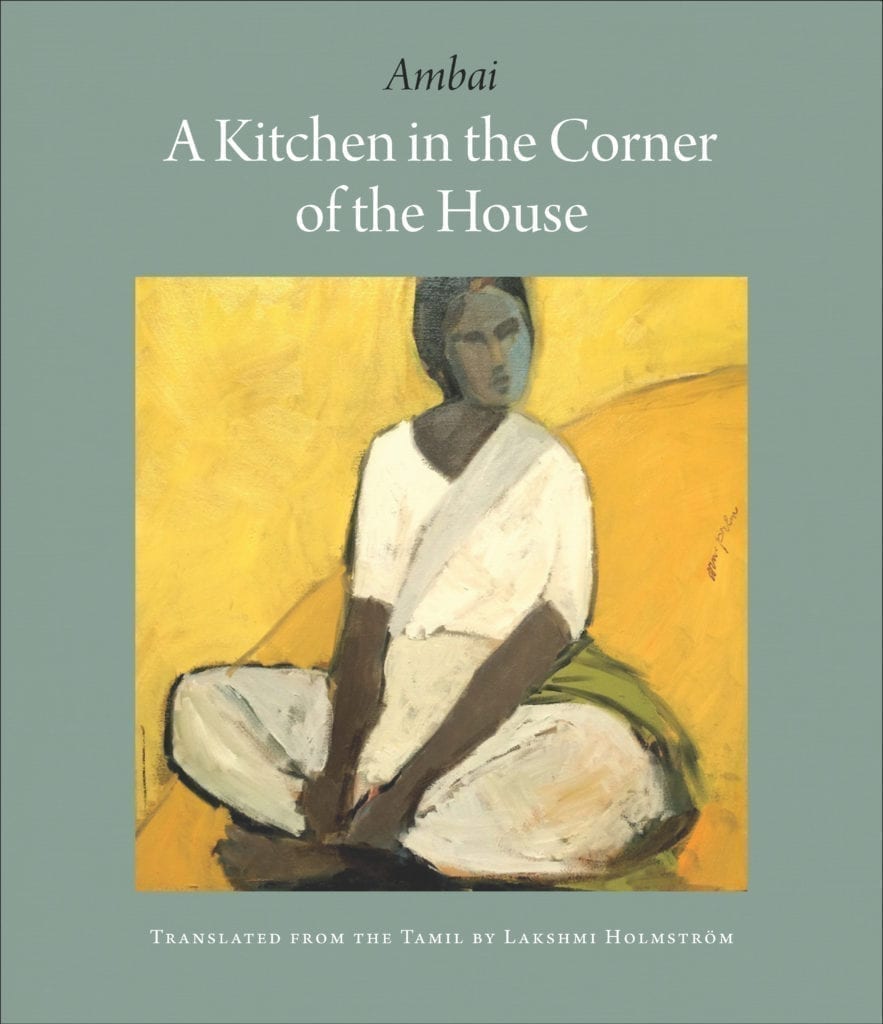In the first half of the book, we find stories revolving around the female body and expounding on domestic themes while in the latter half of the book, we encounter tales on politics, activism, and the role of Indian women in these areas...Ambai infuses a deep sense of reality in her stories by making the worlds of these women rich in sensory details - one can almost smell and taste and feel the environment of the characters.— Sanskriti Nagar, The Cleveland Review of Books
Ambai has created an inspiring collection of female characters who study and have sex. Some wish to be mothers, some do not. These women do not merely long for existence beyond their husbands and brothers and fathers; they achieve that freedom. Holmström’s translation emphasizes the energy Ambai must have included in the original Tamil, and she also manages to bring the sounds of Tamil to an English-speaking reader.— Emma Deshpande, The London Magazine
Women and the seemingly infinite variety of restrictions they labor under are the focus of this wide-ranging story collection by the feminist Tamil writer Ambai. While the details are specific to India, particularly the south, the themes are universal — pregnancy, motherhood, domestic labor, politics, playing second fiddle to men, even (as in the title story) inconvenient architecture.— Alison McCulloch, The New York Times
Unglossed and unrepentant, (Ambai’s stories) range over rakshasis and the Ramayana, over the film music of S.D. Burman and the Hindi songs of Pankaj Mullick; they dip into the intricacies of Carnatic singing ... Ambai’s style is efficient and fluid, with a quick poetry about it that gracefully lays the world down ... A Kitchen in the Corner of the House bodies forth a full roster of psychologically rich characters, glittering and wearied souls that breathe upon the page like the last flickering light of a candle. At the end of the collection, you’re left with the impression that Ambai is a dreamer of imperfect dreams, and a writer of perfect sorrows.— Bailey Trela, 3AM Magazine
The women in Ambai’s captivating and frequently moving collection navigate family relationships and historical dramas with grace ... Ambai uses epistolary exchanges, tales from the Ramayana, and impressionistic sketches to track whole generations of families, as well as to describe the compressions and elisions of memory. Readers will be impressed by the variety of these stories and invested in the characters’ lives.— Publishers Weekly
The clash between tradition and modernity…the lure of transgression and of nostalgia…These recur as themes in many stories that examine a woman's struggle to define her identity in changing times. Yet Ambai upends the image of oppression…For some women, journeys—meaningful, necessary, planned, or spontaneous—end in epiphany; others find contentment at home. Fresh, graceful stories create a palpable world.
— Kirkus
Ambai's short stories place experiences in a shared space and invite us to evaluate life as we know it. And they are written with the kind of language and distance in perspective suited for that task. They shatter the narrow confines of a perceiving mind that makes everything its own and instead spread towards a wide horizon. That is precisely why Ambai's stories are at once the unique and distinctive voice of modern Tamil literature as well as the common voice of a shared world. — Perumal Murugan
Ambai has played a major role in breaking down the literary molds that had trapped Indian women for long. She presented before her readers innumerable women who set out to discover their self-identities in the face of social structures that either deified them or humiliated them.— Salma
I am astonished and moved by the deep wisdom of these stories, the clear-eyed tenderness and humor. Ambai is an explicitly feminist author, concerned with the lives of women, yet her expansive stories never feel didactic, just true.— Shruti Swamy, Electric Literature
We might consider Ambai's short stories as the first expressions of female anger. They depict a world of womanhood that experiences sadness at the recognition that life's sufferings are also uniquely its own. Ambai writes with nuance and a keen sense of aesthetics.— Sundara Ramaswamy
Ambai's stories explore the nuances of personal relationships, complex networks of emotions, and mingle themselves insightfully.
— The Telegraph
Ambai's stories...are boldly experimental, pointing to the real source of the best Indian fiction in the vernacular languages. She makes use of polyphony, fragmentation and multiple persepctives, and her translator succeeds in capturing her technical virtuosity.
— Times Literary Supplement
Ambai brings to bear upon her tales the weight of her knowledge of the mythic, literary and Puranic...A felicity of language and the easy flow of words make the translation a pleasure to read.
— The Hindu
Ambai excels in making physical movements parallel the progression in her stories...Lakshmi Holmstrom has been able to settle down so comfortably with the psyche of Ambai, that her translations of the latter's Tamil writings have the easy flow of the original.
— Deccan Herald

